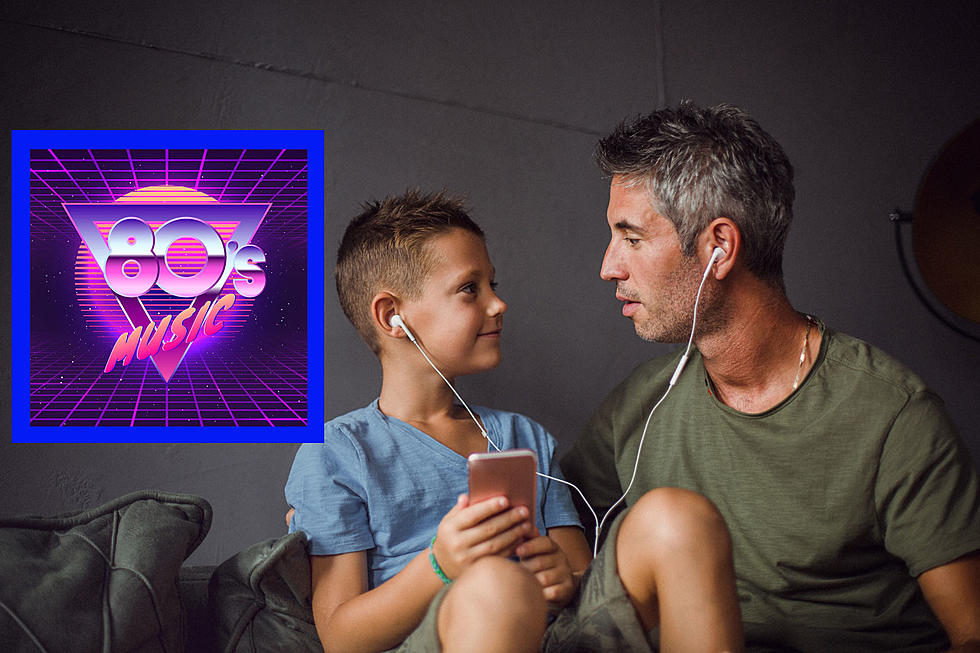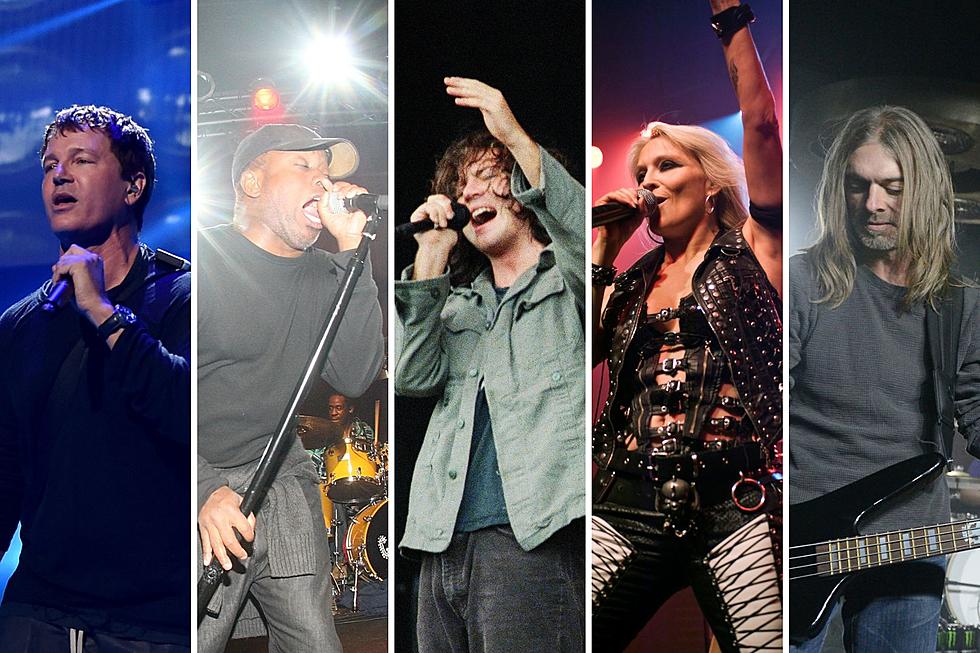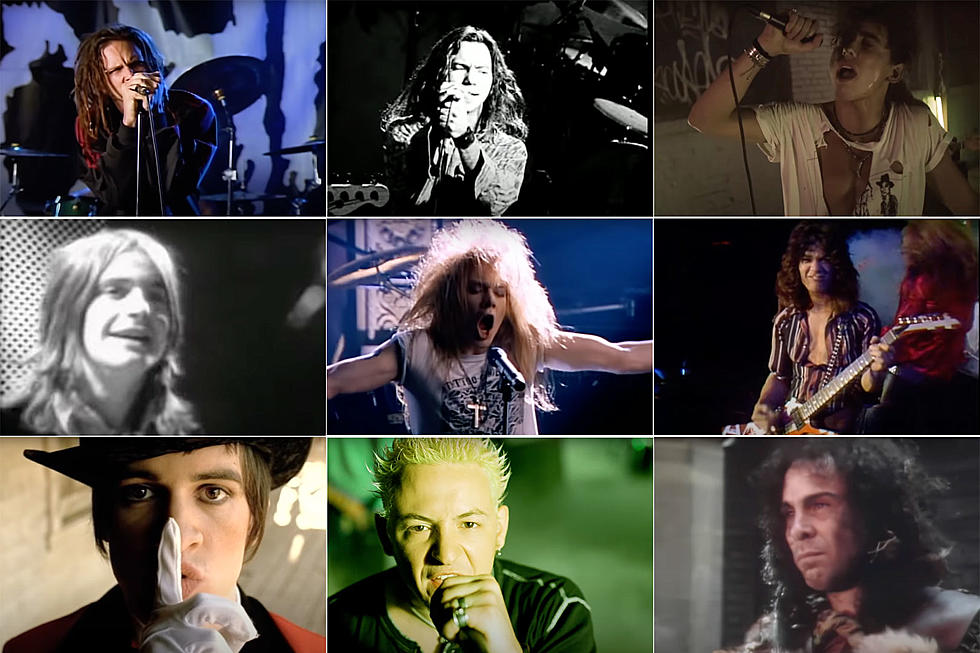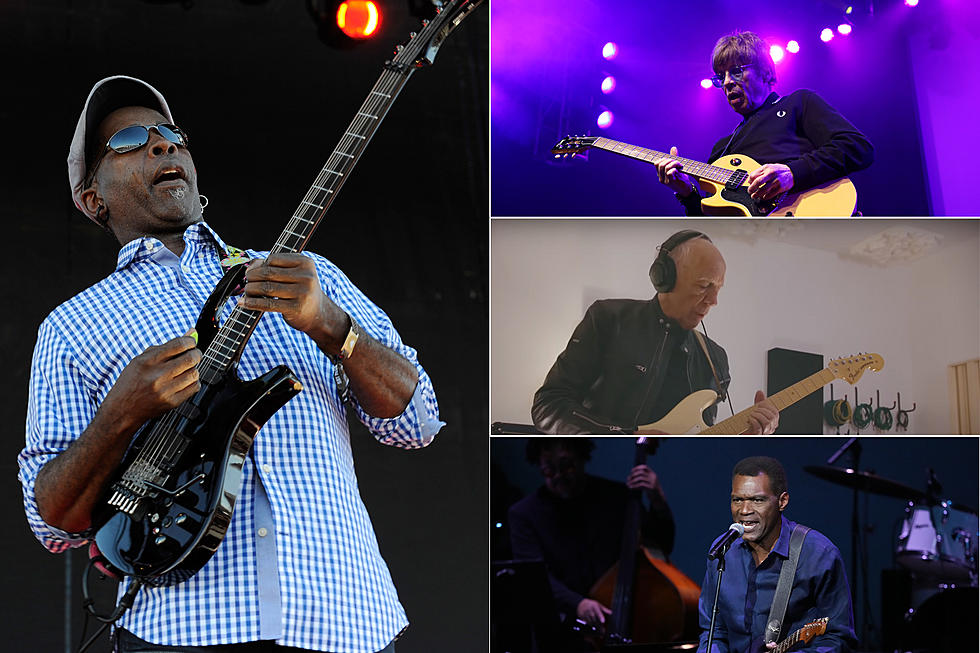
Living Colour’s Corey Glover on ‘Shade’ Album: We ‘Gave Ourselves a Mandate’ to Figure Out Our Interpretation of the Blues
Living Colour last released an album in 2009, but the band is about to return in a big way. Their new album Shade is on schedule for a Sept. 8 release via Megaforce Records and we recently spoke to Living Colour vocalist Corey Glover, who provided more insight on the disc, the band's decision to make their version of a "blues" record and he also spoke in depth about the song "Program" which recently debuted here at Loudwire. Check out the chat below.
The Shade album started with a Robert Johnson tribute you guys played a few years back. What was it like taking on the music of Robert Johnson and when did the lightbulb come on that this was something that you should explore further?
You know I think it was it was several things. We're sitting in the historic Apollo Theater in Harlem doing a tribute to Robert Johnson and here we are -- this band is basically from New York doing some blues stuff that we really didn't explore musically. We never recorded any blues kind of stuff or pursued taking on the idea of the blues. It's very rare and we didn't talk about what the blues is to us or how we would interpret the blues. We never really did that. That was Vernon [Reid] talking about that. So we really gave ourselves a mandate to say we really need to figure out what this is. We take for granted that we are a product of the blues. We talk about the blues but we really never gave it the time.
To take the idea of what the blues is and talk about it thematically, you know you could talk about there's some delta blues and there are some Mississippi or Chicago blues -- this, that and the other, but we really never talked about what they were really getting into as blues artists. That's what we were trying to get at as well and there's a music aspect to it that's basically ours and that was our natural progression of the blues was that we should really explore it. We should really give a real microscopic look at what that means to us.
I'm sure everybody has their own individual influences when it comes to the blues. But for yourself, which artists represent what the blues mean to you? Was there anybody you wanted to specifically emulate or make sure that you got their style into what you’re putting on this album?
You look at the some of the things we talked about. When I was younger, I tell the story every now and then, I got into the blues and this is when the band first started. During the time that we were working with Mick Jagger -- this is not a shameless namedrop at all, I swear to you. But I was talking to him about the blues and how I loved the blues and how I was really getting into it at that particular point in time. I was reading a lot of books about it. I was studying it, really, as an intellectual exercise. We were in the studio with him and I saw him the next day and he came to me and gave me this mixtape. He made me a mix tape -- all the blues records he had in his house, in New York City, and gave it to me. This is the stuff that he listened to that made him want to do what he was doing.
Putting this album together, obviously it's inspired by the blues but not really a straight up blues album per se. There's Living Colour heaviness on this thing ...
It's our interpretation, that's what it is.
What was the biggest challenge in deconstructing the blues and finding out how you wanted to proceed with your brand of the blues?
What we did and what we found is that just like us, there's a lot of social commentary among us. There’s a lot of ... back in the day, they said that hip-hop was CNN with a beat, but that’s what the blues was really. When we did "Preachin' Blues" it was like, yeah, this is a song about depression. This is a song about the idea of feeling, not just low in terms of just “I've got the blues 'cause my woman done left me," but I feel like, I have a form of depression. "Who Shot Ya" was a blues song in that it’s telling you the story. We sort of, we revved it up to a speed that we felt comfortable with, within the blues idiom. It worked.
Absolutely. You mentioned social commentary and Living Colour have never been one to shy away from social messages. In terms of the writing, how much of a discussion goes on when it's a more socially conscious track? Is it a collaborative effort? Is it someone bringing something and everyone signing off on it? What's the process there?
It’s a little bit of everything. That’s our writing process. Some folks work well alone. We all collaborate on it and all give our signature on it. We have to, or it won’t be a Living Colour song. It’s all a collaborative process.
You also worked with Andre Betts producing this album and I know you've worked with him in the past as well. What did it mean to have Andre back for this journey? Can you talk a little bit about what he brought to the process?
You know, It’s family, for the most part, and we try really hard to ... he had a really good set up. His perspective is very different. Though we’re making a blues record, we know that there’s some modern sensibilities that need to be taken to task with this record. So, we wanted something that had that kind of ear, and Dre was the guy for that. He had a great studio, and it gave us a great place to sort of post up and get it done.
Getting into the album here, I'm loving "Program" that we debuted here at Loudwire. I love that add on at the beginning with the interview with Scarface. Curious, where did that audio come from ...
We did an interview for somebody, I forget who we did the interview for. But somebody told us, “You know, he mentioned you guys." "Really, what did he use?" Just that inasmuch he said that there are really just a string of these rock bands, in his estimation. He’s like, “Whatever happened to those guys?” That’s the question we get all the time. Whatever happened? Like we fell off the face of the Earth and now we’re working at the post office. We're not. We’re still doing what we do.
The song itself lays itself out pretty well. Topics of racism in there and how messages can be controlled by the media. What happened to our news? I remember how it was as a kid but everything now kind of has an agenda in how things are presented ...
You know, back in the day, the news was called a "loss leader." It wasn’t for profit. News wasn’t made to sell stuff. News was there to be purely informational. That was their public service. That's all the news was supposed to be, a public service that lets you know what's going on in and around the world you live in, not to be an arm of some sort of political ideology. It wasn't a place for you to get your talking points out of. It was a place for you to get informational.
Then at some point it was like, we could make a lot of money in this. There's something to be said about it -- that we've taken the notion of public service itself out of the equation. That even within the context of politics, I don’t know any politician that isn't in some ways a rich person. There are no poor politicians. There isn't a politician that has a day job. What happened to public service?
While we're on the topic of "Program" here, the track also has a callback to "Cult of Personality." Two-plus decades later, that's still a timeless track. Can you talk about the evolution of that song over the years, what it meant to you then and does it have a different reference point to you now in today's culture?
I think more so now than it was back in the day. We did that song, what 1987? We are 30 years past that point and in that time we had Reagan, Gorbachev and Glasnost, Marcos -- all these people that were in the midst of the zeitgeist, right? These people had that thing about them, and even going further back than that, you can talk about civil rights leaders. The people we have in the song, from Malcolm X to Teddy Roosevelt to go back even further. Go back even further with Lincoln and all kinds of people, but they had something about them that had gone from history to myth. There's a mythos about George Washington. There's a mythos about Thomas Jefferson. There's a mythos about Winston Churchill and that's what we were talking about at the time. Just like the news, it feels like we've learned how to commodify it. We've learned how to make money from it. People wearing the t-shirt not knowing who Che Guevara is or what he stood for or somebody having that photo of Barack Obama who is about to go into that realm pretty soon as well, I'm sure.
"Who Shot Ya," an important track on this album. I realized that was written a while back, but how crazy has it been to see the gun violence and police situations increasing so much and being prominent in the news in recent years?
Well Biggie wrote that song in the '90s. It wasn't like that wasn't an issue then. But what we see now is a reaction like, and I don’t know if this is true or not, but it feels like it's on steroids now. The idea that the answer to any question is a gun. The bigger the gun, it answers the bigger question. And that's where we were coming from and as much as we can talk about Trayvon Martin and Philando Castillo and we can talk about all the people that were victims of gun violence including Biggie Smalls, Robert Johnson and Marvin Gaye -- three people that are on this record that we covered, all three of them died of gun violence -- that we are not really taking into account our bloodlust that comes with having a gun.
You mentioned Marvin Gaye. Loved your take a lot on "Inner City Blues." If you want to talk about that song in particular and working that into this record?
The same way that Robert Johnson came out and we were playing it live and saying, "Wow, this is very interesting," it's the same thing with "Inner City Blues." We didn't come up with the idea. It's just let's try it and see what happens. It sounded great. It was like, well let's record this too and see what happens.
Off this record, obviously you'll get a chance to play even more stuff once the album comes out but do you have a favorite song to play live or song you’re most looking forward to getting out there and playing for a crowd?
There's a bunch of stuff -- inasmuch as I think about this record, unlike our previous records, a lot of it is stuff we've never played live. We wrote it, but never played it, just in the studio. It'll be interesting the change that comes about with playing it live. It'll change, it'll be something different. It'll be a different animal once you start playing it, once you start modifying it and changing it.
I saw where this is going to be available to people on vinyl as well, which I'm happy about. I love my vinyl. Curious, are you guys big vinyl fans/collectors?
I wish I was a collector. I was one for a long time, but as you know, moving and kids and all kinds of stuff curtailed my vinyl buying. But I have like, a storage space filled with vinyl records that I can't do anything with right now. [laughs] But I'm an analog guy, I love the sound of analog music more than I like digital music so much. I remember as kids my parents and my older brother and sister loved, looooved Bitches Brew, and that's Miles Davis. That was done in quadrophonic/stereophonic sound and I love just hearing s--t I didn't know was there -- just discovering new things every time, sitting in front of the stereo going, "Oh wow I didn't hear those cymbals back there the first time I heard it," but the 27th time I've heard it, i'm hearing new stuff. I love analog music. I'm glad we're gonna make everything in vinyl.
The album is coming out Sept. 8 and I know it's been a long process. How excited are you go get this out to fans and what will you be doing on Sept. 8?
We'll be playing, probably, on Sept. 8. I think we're gonna be in Europe when the record comes out. I can't wait. It's been a long time coming and I can't wait for people to actually hear it and see what their reaction to it is. Judging from what I'm hearing from journalists, it's a good record. I'm too close to it right now to say, but yeah I think it's good. It's marvelous. But I want to hear what other people feel about it.
Our thanks to Living Colour's Corey Glover for the interview. As stated, the band's new album 'Shade' is due on Sept. 8. You can pre-order via Amazon, iTunes or GooglePlay. There is also a vinyl pre-sale option. Revisit the song "Program" below and look for Living Colour on tour at these stops.
Living Colour, "Program"
See Where Living Colour's 'Vivid' Ranks Among Our Top 80 Hard Rock + Metal Albums of the 1980s
More From Loudwire









